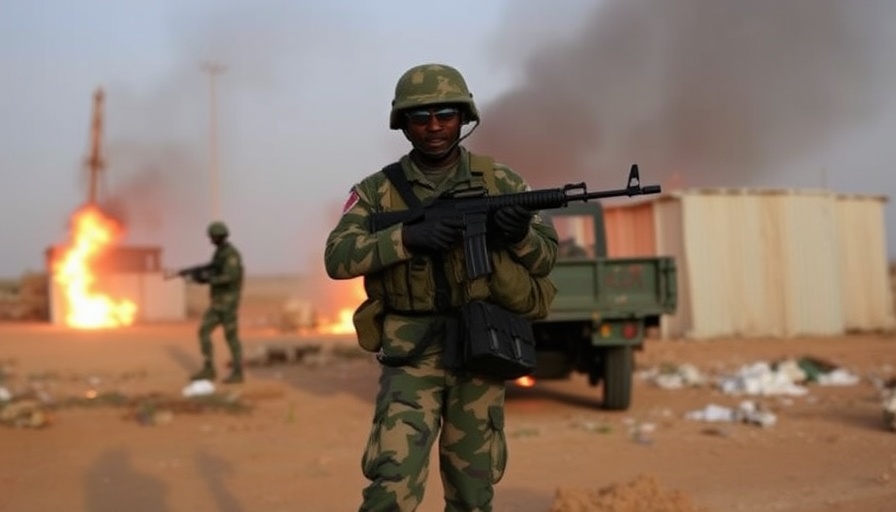
Explosion at Military Base: A Troubling Sign for Stability in Somalia
A recent explosion at a military base in Somalia's capital, Mogadishu, has raised alarm bells regarding the ongoing security and political challenges facing the nation. This incident not only highlights the precarious state of military facilities but also poses questions about the broader implications for governance and foreign relations in the region. As Somalia grapples with internal strife from militant groups, the ramifications of such violence extend beyond local borders, influencing the global perception of stability in African nations.
The Current Landscape of Security in Somalia
In light of the recent blast, it is crucial to examine the security landscape of Somalia, which remains volatile due to the persistent threat of Al-Shabaab and other insurgent groups. The increased frequency of attacks underscores the urgent need for robust military strategies and international cooperation in combatting terrorism. For investors and policymakers, understanding these dynamics is vital, as they directly affect not only local governance but also broader economic engagements and trade opportunities.
Implications for African Politics and Governance
Further complicating Somalia's security scenario is the broader picture of African politics, particularly as multiple nations within the continent also face governance challenges. The incident at the military base may serve as a stark reminder of the interconnected nature of Africa's political landscape, where instability in one region can impact international relations and investment prospects across the continent. As such, stakeholders must remain informed about how these developments may reshape Africa's role within global trade frameworks.
Geopolitical Repercussions on Global Trade Dynamics
The implications of instability in Somalia resonate within global trade dynamics. With Africa's economic trajectory increasingly becoming a focal point in foreign relations, incidents like this one serve as critical junctures that can impact investor confidence, particularly from global powers interested in the continent's resources. For instance, shifting attitudes toward Africa’s strategic importance as a trade partner might now be influenced by perceptions of security and political permanence.
To navigate these turbulent waters, policymakers and investors are encouraged to closely monitor the evolving situation, as understanding the interplay of local incidents and their global implications can be critical to seizing opportunities in Africa’s burgeoning markets.
 Add Row
Add Row  Add
Add 


Write A Comment